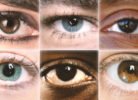When I applied to graduate school, I was often asked what I was interested in studying. Initially, being naïve and uneducated about the nature of (graduate) education, I often answered the truth and began to enumerate the endless list of my interests: I am interested in studying humans, our psychology, our belief systems, how we operate, how we think, what we mean by soul, how religions affect our life, behavior, decisions, and actions, how compatible philosophy is with psychology, how philosophy’s creative freedom and unrestrained imagination can inform our understanding of man, how sexuality and religiosity are related, what the religious aspects of sexuality are and what the sexual aspects of the religious experience are, how we motivate ourselves, how we pursue our goals, why perfectionists are perfectionist while others don’t care about almost anything, what abstraction is, how abstraction and language relate to each other, what explains our capability for abstraction, how language influences our thinking, what arts tell about man, and what we mean by consciousness and self-awareness – only to mention a few of my interests.
But when my professors, advisors, and fellow students heard my list, they were shocked, on the point of fainting. They couldn’t believe that I, as an undergraduate senior, ready to apply to graduate programs, had not yet decided what I wanted to study. My curiosity was punished and ridiculed: I was told to “mature” and “grow” ready for graduate school by “narrowing down” my unacceptably broad interests to one specific, measurable topic. To something like “characterizing circuit-level pathomechanisms underlying self-control failure in impulse control disorders.” Wow! I was indeed far from where I was supposed to be as a graduate candidate.
Interestingly, however, discussing, say, Jung’s contribution to psychology, most textbooks emphasize how the famous Swiss psychologist never limited his investigations to narrowly specified topics, but, rather, struggled to incorporate into his studies as many sides of the human coin as he possibly could. He proudly studied arts and religion, language and mythology, because he believed that the authentic understanding of human beings requires a more complex approach than that of characterizing circuit-level pathomechanisms underlying self-control failure in impulse control disorders. Interestingly, Jung is neither punished nor ridiculed by contemporary academia, but, rather, his example is set for students and recommended to follow.
I hope that the tremendous contradiction between what is said and what is actually done is clear at this point.
I wonder: Aren’t we lost in the detail? Didn’t we get a little overexcited and blindfolded by our latest discoveries in science that made it possible for us to break down man into his smallest building units and study him at the subatomic level? While such studies are not entirely useless, I still wonder whether graduate-level education should force such approach to every candidate or it should allow students to decide for themselves whether they desire to attain a more holistic or a more detailed understanding of the world, of man, and of existence in general. Certainly, openness and the respectable desire to learn about most everything should not be ridiculed and punished by those who are supposed to nurture imagination, curiosity, and man’s innate excitement about the multicolor and multifaceted nature of our world.
I find it quite despicable that academia’s motto became the abhorrent principle of “narrow-down.” Is it truly what academia can offer to me today? To assist me in narrowing my interests down? In narrowing my self, my curiosity, my imagination, my fascination, my motivation, my interests, my zeal, my commitment, and my colorfulness down? Even the very words “narrow” and “down” are to generate shame! Academia = narrowness? Academia = downward movement? Shouldn’t academia be, instead, more optimized to “widen up” my curiosity, understanding, network of investigations and interests? Aren’t the words “wide” and “up” more compatible with the aim of education? With the ideals of cultivation, growth, inclusion, and enrichment?
But what explains such narrowness in contemporary academia? The simple answer is the scientific approach. A scientific investigation cannot study broad, complex phenomena. It is only capable of grasping the minuscule, and it clearly prefers what is numerically measurable to what is impossible to be statistically and mathematically measured. This is why studying how our belief system affects our decision making is not a good enough topic for graduate studies. It’s too wide, too broad, too obscure, too unclear: too immature and childish.
Clearly, one could argue that undergraduate general education is to nurture and satisfy a broad understanding of the world, while graduate studies teach students how to specialize in one specific topic in order to gain a detailed, analytical understanding of it. Yet graduate students of psychology are to become professionals of the human being and will be required to improve individuals’ life by guiding them emotionally, intellectually, and spiritually. They will be required to understand man in his reality, not at his abstract subatomic levels. They will face questions like “How should I not be depressed if my husband is a violent alcoholic, I have just been laid off, my son needs a costly surgery, and I feel that God is really abandoning me?” Little help will then provide the ability to accurately describe characterizing circuit-level pathomechanisms underlying self-control failure in impulse control disorders.
And still: If you are a psychologist in America today and do not publish in scientific journals, the field considers you a mediocre, insignificant, second-rate little no-name. The central measure of a psychologist’s professional value, contribution, and prestige is the quantity (not necessarily the quality!) of his scientific articles. The number of your publications, therefore, is important to you if you aim at building professional prestige, obtain better positions, negotiate higher salaries, and secure the greatest admiration of your competitors.
When something is this obsessive, its authenticity becomes, at best, dubious. In this case, academia’s science-worship seems to be a fanatic compensational process for past centuries’ anti-scientific, blind, religious dictatorship tendencies. Whatever the Church said, that was. Nothing else was. Then Descartes began to awake, laid down the foundations of a different, more critical, less biased thinking until scientific obsession was born to take revenge for the Church’s past intellectual despotism.
Inevitably, the word “objectivity” showed up at some point, and, ever since, it has remained on stage. Objectivity. Rigid objectivity. “Give me numbers! Show me the numbers! Show me quantitative research evidence! If it’s not measurable, it doesn’t even exist! Subjectivity sucks. It’s too subjective. Too Church-like. Too dangerous. Too intangible. Too broad. Far too human. Impossible to study and to describe. Impossible to quantify, to tame, to control, to measure. Let’s avoid it in serious places like the academia. Let us not shame ourselves with inferior, unworthy, unscientific, mediocre subjectivity!”
So now subjectivity is bad, I guess. I can’t even say the word “subjectivity” at the university. People would look at me with contempt and outrage. “Don’t you know the trends? Objectivity is the trend!”
Yes, yes, I understand the need for critical thinking, scientific accuracy, and objective validity. Except, I am rather cautious. Humanity progresses in waves. A wave comes, claims exclusivity, arouses the entire world’s passion and commitment, and it makes us blind and biased until the next wave reaches us and wipes out everything that the previous brought. In every major developmental stage, we get married to a specific guiding ideology only to realize centuries or decades later that another marriage will be more beneficial. This is how we evolve, this is how we progress, and with this, nothing is wrong. But as we know that our current scientism is only a transient wave which will be soon replaced by a better approach, we really shouldn’t take this marriage (or any other) too seriously. We should not, at least, give this much exclusivity to it knowing that tomorrow we will have another partner.
Because, let us be honest, we could (perhaps!) speak about objectivity in hard sciences like physics as long as we would limit our investigations to earthly dimensions, ignoring the possibility of other dimensions. But how could we possibly speak about objectivity in the field of psychology? Isn’t the entire human phenomenon – whatever it means – the perfect embodiment of subjectivity – again, whatever it means?
Let us not go this far. Let us just ask ourselves what science is for – at least theoretically. Isn’t it to make human lives better? To reveal the truth more authentically than its predecessor, religious fanaticism? Isn’t the improvement of the human experience its purpose? The transformation of this world into a better place?
Truly, science has the potential for making the world a more human and better place, universities and graduate schools must, therefore, require their students to engage in scientific, critical thinking and investigations. But turning science into a blind fanaticism, a pseudo-education, and an egotistic tool of self-assertion and professional self-promotion is far from its original purpose.
Even though completely senseless and alien, please read through the next short excerpt from a psychological study discussing how family conflicts affect African American children’s mental health:
Class 1 included 19 adolescents (3%) designated the persistently-high family conflict group, with a significant intercept (M = 2.87, SE = .15, p < .001), positive slope (M = .62, SE = .27, p < .022), and negative quadratic (M = –.22, SE = .08, p = .005). The average posterior probability of membership was 94%. The few AA adolescents in this group reported the highest levels of family conflict throughout high school and demonstrated an initial increase in family conflict, followed by a plateau, and then a decrease. Gender predicted membership (b = 1.00, SE = .39, p = .010), such that AA adolescent girls were more likely than boys to be in the low-increasing group. […] Mauchly’s test of sphericity indicated that the homogeneity assumption was violated, so we used Wilks’s lambda to evaluate significance of overall F tests. We found a significant multivariate test for gender, F(3, 461) = 10.89, p < .001, partial h2 = .07, and for trajectory class, F(9, 1122) = 5.61, p < .001, partial h2 = .04, indicating significant differences in age 20 mental health problems across trajectory classes. As shown in Table 3, we identified significant differences using pairwise comparisons of estimated marginal means with Bonferonni adjustments. We found a significant univariate test of trajectory class for anxiety, F(3, 463) = 4.43, p < .004, partial h2 = .03. The high-decreasing family conflict group reported more anxiety at age 20 than the persistently-low group.
Besides the pathetic fact that in a rigorously edited academic writing, the name “Bonferonni” should be correctly written as “Bonferroni,” doesn’t this excerpt, this strange, unintelligibly over-mystified language feel intimidating? Doesn’t it convey the contemptuous message that those clever scientists are speaking over my head about my life’s misery without a trace of empathy or human emotions for me? How likely are they to carry out this study on my life in order to understand how my pain, my drama, my family-terror eats me up day by day, slowly, bite by bite until I accumulate unbearable levels of fear, anxiety, and tension and collapse mentally? These well-paid university professor-scientists gather data from me. For them, my family drama and I are mere data-sources They then analyze the data. Instead of helping me get through my miserable family life, they analyze my misery. They measure my pain, my tremblor, my stress, and anxiety, and they play with all of it when they convert my tragic experience into numbers like modeling clay and use them for calculations and – ultimately – to generate material for their scientific publications and career self-advancement. Then they congratulate each other on their successful publication achievements. And I, the data source, am no longer relevant, interesting, or important for their purposes. They took what they needed, they complied with ethical standards and then elegantly debriefed me.
Don’t you think that such science-making is far removed from the sympathetic understanding of human pain? Far removed from any concern for real human well-being? How do you think this way of playing science can possibly translate into a real psychology, into the actual support of the needy person? How exactly did these scientists help their “subjects?” How exactly did they alleviate those or other children’s pain? How exactly did they contribute to the improvement of those or other kids’ lives? By paying them $50 for the participation in the study? By speaking about them in terms like “How many of them did you get for your study? Is your sample size big enough to make the study statistically valid?” And isn’t it bizarre, even absurd, to call these kids’ victimhood a “membership?” As if these victimized children had found a bargain price and bought a one-year membership of a dysfunctional family! Isn’t it completely unacceptable to say “gender predicted membership” instead of saying that girls are beaten more frequently and more brutally than boys?
When, in my childhood, my stepfather came home drunk and began to brutally beat us, after successfully escaping from the house, I ran in my pajamas along the street, at night, in plain winter, in snow and freezing air, until one of our neighbors, Ms. Kate heard my desperate knocking on her door and let me in to hide and cry. She did not speak in numbers and statistical abstractions about me or to me. She was simple and maybe even poorly educated, but she had a big heart and knew what she was supposed to do in order to help me. She comforted me and offered a safe shelter to me until the situation at home became safe again. She didn’t shine her scientific vocabulary over my misery but did the simplest and most human things that occurred to her. Offered me water. Kept silence. Turned the heat on. Covered me with a blanket. And it all helped. It wasn’t elegant, it wasn’t scientific, it didn’t get published, and she got no salary or professional recognition for it, but it was authentic, useful, and honest. It was also subjective. Very subjective: subjective humanism, mercy, love, and selflessness. Attributes that could not be transformed into statistical numbers. Attributes that did not lend themselves to scientific modeling, manipulation, testing, and publication. Attributes that did not advance Ms. Kate’s professional career but lessened my distress and, thus, made Ms. Kate a better person.
Do you feel that scientific studies and publications like the above are really being pursued to help you in any way? To improve your life? To support you? To help your situation? To help you get through your troubles? To make you stronger? To make you more resilient? To bring peace to your family? To bring harmony into your life? To make your neighborhood a better and safer and more cheerful place? To increase wealth and well-being? Do you feel that science like this is really made to help those African American children whose mothers and fathers, just like mine did, beat each other, yell at each other, maybe even threaten each other with a gun at home where peace, harmony, balance, safety, and love should reign? Do you think that the psychologists who conducted the above research and published this article reflect in their writing their personal concern for those or other miserable kids? Do you think that turning real human lives and their painful tragedies into numbers, analyzing those numbers through statistical software, and then writing about them in mathematical terms with callous insensitivity only to record one more successful publication on one’s academic résumé is a useful, necessary, and ethical way of serving science? Does it make the world a better place that we now know that this kid from the study, Joe, who confessed his life’s painful drama, mama’s and papa’s regular violence, to the inquiring scientist, is a 4 on a statistical scale and has an identifier M and SE and p, and these identifiers are 2.87, and 0.15, and 0.001? Does this really help Joe overcome the terror in which he lives? The pain that consumes him? The distress that debilitates him? Does this publication make his life any better? Does this publication sensitize anyone from the government, from the neighborhood, from the community, from academia, or from anywhere? Will anyone, based on this publication, become more able, motivated, or ready to help Joe? Does this publication anyhow offer a solution to Joe’s problems? Do the writers of the above text seem to be really worried about Joe’s present and future, or are they simply using Joe’s case profile to advance their own career as prolific scientists?
Imagine a case where a serial killer takes you and tortures you. While the police are investigating and looking for you, the serial killer decides to finally kill you. He hangs you. But right when he hangs you, the police suddenly arrive and run into the room. They shoot the killer but do not run to take you down from the rope. Instead, they keenly observe your agony and collect data for their euphemistic “scientific study” to improve the world: How much do you suffer? How long do you resist? To what coping strategies do you resort while hanging and agonizing? When do you plateau? At what angle is your neck breaking? How many times per minute are you able to breathe? Does your gender predict your membership probabilities in the club of the neck-breaking? And what does Mauchly’s test of sphericity tell us about the underlying normality assumption of your neck-breaking? Then, when they are done collecting their data, they put a $50 bill into your pocket, formally debrief you, and, fully complied with their ethical requirements and obligations, they let you rot in your misery. They did science. They quantified and tested your dreadful tragedy, and they contributed to a better scientific understanding of how the deadly mechanism of hanging works. Isn’t this exactly what psychologists studying people’s misery do when they use their slowly consuming suffering for their studies and publications without actually helping their subjects in a more tangible, more realistic, more practical, and more immediate way?
Is Joe’s real life’s real pain addressed in the above piece of scientific writing? Not quite. Joe was used. And Joe was then forgotten. The scientists used Joe’s misery for their own career advancement and then moved on. Among their colleagues, they probably pretended to feel sorry for Joe’s drama (a little subjective humanity for the theater), then got their paycheck for the study, their recognition for the publication, and went on to find the next sample whose blood they can suck out, transform into statistical numbers, and, ultimately, publish as a juicy little journal article.
Despite the appearances, I am not against science, research, or the methodical advancement of our accurate understanding of certain natural phenomena. But if there are so many strict rules concerning psychological studies and publications, I wonder whether we could improve such studies by obliging psychologists to include at the end of their publications what they actually did for their clients, and how they actually helped the human participants of their studies. Not by paying them $50 for the participation, because that is no help. But by, say, offering to them five free counseling sessions to learn how to become strong and resilient, how to remain hopeful and optimistic, how to defend themselves from stress and conflict, how to plan a better future in the midst of misery, or by offering a few free counseling sessions to the parents of such children to teach them how to manage stress and conflict without choosing aggression and engaging in domestic violence. Then, and only then, would I fail to question the authenticity of psychology’s often pathetic and shameless claims of scientific identity. Perhaps if we weren’t asked to narrow down the infinity of our humanity to a single, quantified, measurable, well-defined topic of scientific investigation, we would become better and truer psychologists, honest and humble servants of the sacred science of the human soul.
The quoted excerpt is taken from [Choe, D. E., Stoddard, S. A., & Zimmerman, M. A. (2014). Developmental trajectories of African American adolescents’ family conflict: Differences in mental health problems in young adulthood. Developmental Psychology, 50(4), 1226-1232. doi: 10.1037/a0035199].





































